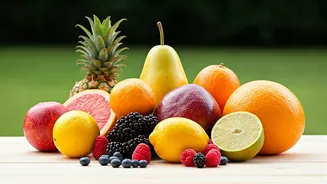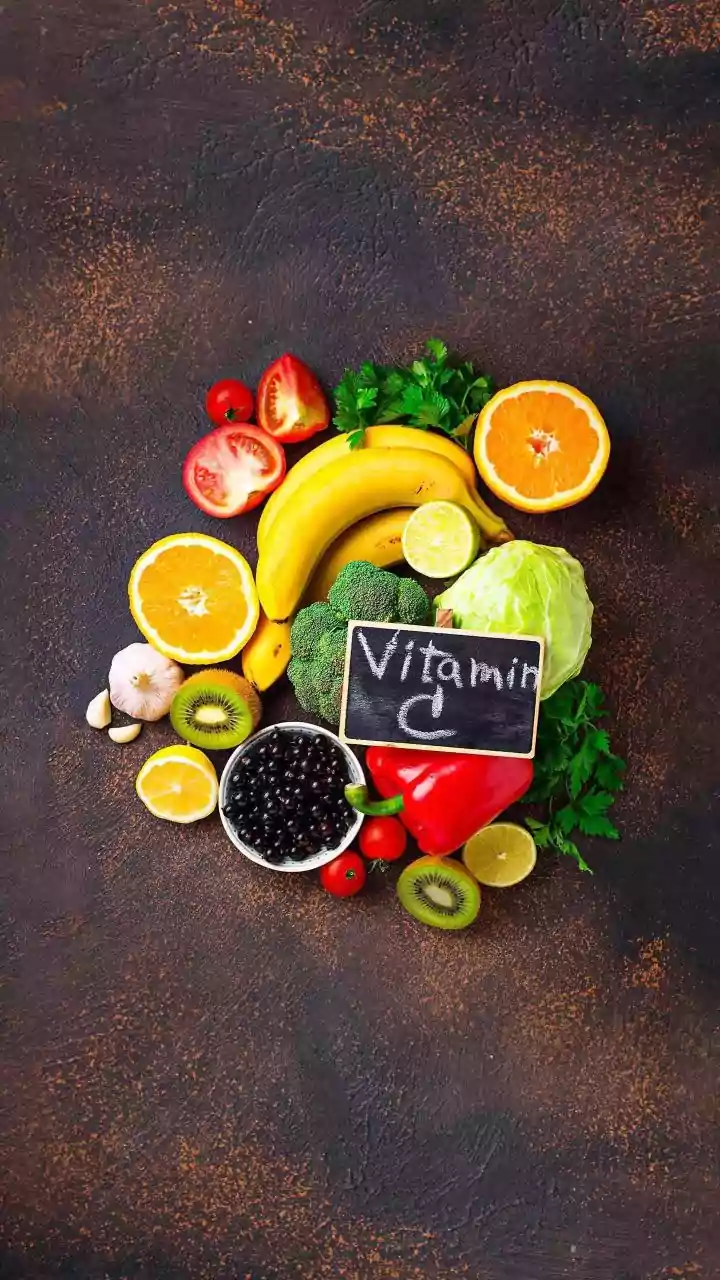Apples: Brain-Boosting Benefits
Apples, a universally loved fruit, are an excellent choice for children's brain health. Rich in antioxidants, particularly quercetin, apples shield brain cells
from damage caused by free radicals. This protective action is crucial for cognitive function and memory. Furthermore, the fiber content in apples aids in digestion, which promotes overall wellness. Encouraging children to consume apples regularly can lead to improved brain performance. Apples also provide natural sugars for consistent energy levels, allowing children to stay focused and engaged throughout their day. Including apples in snacks or as part of meals can be an easy way to provide essential nutrients that promote cognitive health and support physical growth.
Blueberries: Antioxidant Powerhouse
Blueberries are renowned for their high antioxidant levels, making them a superb choice for a child's brain development. The antioxidants in blueberries work by combating oxidative stress and inflammation, which can affect cognitive abilities. Regular consumption of blueberries has been associated with enhanced memory and improved concentration. The vibrant blue color of blueberries comes from anthocyanins, powerful antioxidants that enhance blood flow to the brain, optimizing cognitive function. Beyond their brain benefits, blueberries contribute essential vitamins and minerals, supporting overall growth. They can easily be incorporated into kids' diets through smoothies, snacks, or breakfast cereals. Their sweet taste and appealing texture make them a simple and enjoyable snack for children.
Bananas: Energy and Focus
Bananas are excellent for providing a steady release of energy, which is important for brain function and overall performance. The natural sugars found in bananas offer a balanced source of energy, helping children to maintain focus throughout the day without the sugar crashes linked to processed foods. Moreover, bananas are rich in potassium, a mineral crucial for nerve function and brain health. Potassium helps transmit signals between brain cells, which can boost cognitive processes. Bananas also contain tryptophan, an amino acid that converts into serotonin, a neurotransmitter that can improve mood and reduce anxiety, directly impacting cognitive performance. Whether eaten as a quick snack or part of a meal, bananas are convenient and nutritious.
Oranges: Vitamin C Boost
Oranges are an excellent source of Vitamin C, a vital nutrient that is beneficial for brain health and cognitive function in children. Vitamin C, an antioxidant, shields brain cells from damage caused by free radicals. This protective action is crucial for maintaining cognitive performance and memory. The consumption of oranges also supports the synthesis of neurotransmitters such as dopamine and serotonin, which influence mood, concentration, and learning. Including oranges or orange juice in a child's diet boosts immunity, and promotes optimal brain function. Oranges can be served as a refreshing snack or can be included in meals or drinks to ensure that children obtain the necessary vitamins for their development.
Strawberries: Rich Antioxidants
Strawberries are not only delicious but also packed with nutrients that support brain health. The antioxidants found in strawberries work to defend brain cells from oxidative stress. Regularly consuming strawberries can improve cognitive function. Additionally, strawberries contain high levels of Vitamin C, which is essential for synthesizing neurotransmitters that are essential for cognitive processes. Strawberries can also help maintain blood flow to the brain, which is key for clear thinking and attention. The vibrant color and sweet flavor make them an appealing option for children. Adding strawberries to breakfast cereals or packing them as snacks is a straightforward way to provide crucial nutrients that support a child's brain development and overall well-being.
Grapes: Enhanced Memory
Grapes are packed with beneficial compounds that enhance memory and cognitive function. The antioxidants present in grapes shield the brain from oxidative stress, improving cognitive performance. These antioxidants also support brain health by promoting blood flow to the brain. Grapes are rich in resveratrol, a compound that supports learning and memory. Regular consumption of grapes can contribute to cognitive enhancement and may provide benefits in children. Including grapes in a child’s daily diet can be achieved by serving them as a snack or adding them to salads or breakfast meals. The ease of consumption and natural sweetness of grapes make them a great option to boost brain health.
Kiwi: Cognitive Benefits
Kiwis are a nutritional powerhouse, offering various benefits for brain health. They are loaded with Vitamin C, which supports cognitive function and protects brain cells. The antioxidants present in kiwis fight oxidative stress and inflammation, contributing to improved memory and focus. Moreover, kiwis also contain folate, crucial for brain development. Folate is crucial in preventing neural tube defects and supporting cognitive functions in children. Adding kiwis to a child's diet offers essential nutrients that promote cognitive health. Kiwis can be enjoyed as a snack, added to smoothies, or served as part of a meal. Their unique taste and appealing texture can make them a great addition to your child's diet.
Avocados: Healthy Fats
Avocados are rich in healthy fats, which are fundamental for brain health and development in children. The monounsaturated fats found in avocados support the structure and function of brain cells, improving cognitive processes. Additionally, avocados contain essential nutrients like Vitamin K, folate, and potassium, all of which contribute to brain health and cognitive performance. Regular consumption of avocados may lead to improved memory, focus, and overall cognitive function. These benefits make avocados an important part of a child's diet. Avocados can be easily incorporated into a child’s diet through simple meals like toast, salads, or smoothies. The creamy texture and mild flavor make avocados a versatile and beneficial food for children.
Pears: Fiber for Brain Health
Pears are a good source of fiber, which directly impacts brain health. A healthy gut is linked with improved cognitive function. Fiber aids in regulating blood sugar levels, ensuring consistent energy for the brain. This can lead to better focus and concentration in children. Moreover, pears offer antioxidants that safeguard brain cells from damage. The fiber in pears supports digestive health, which is essential for overall well-being. Adding pears to a child's diet through snacks, smoothies, or breakfast cereals is a straightforward way to boost their cognitive function. Their mild flavor and soft texture make them an ideal addition to a child's diet. Pears contribute essential nutrients that promote optimal brain function and support overall growth and development.
Mangoes: Vitamins and Energy
Mangoes are packed with vitamins, minerals, and natural sugars, making them a great choice to fuel children's brains and bodies. The vitamins, especially Vitamin C and Vitamin A, found in mangoes support cognitive development and improve brain function. The natural sugars provide a steady release of energy, helping children maintain focus throughout their day. Mangoes also contain antioxidants that protect brain cells from damage. The benefits of mangoes include improved memory and cognitive performance. Mangoes can be eaten alone as a snack or in smoothies, and their unique sweetness and appealing texture make them a popular choice for children. Consuming mangoes can make a great contribution to supporting brain health and promoting overall growth.


















